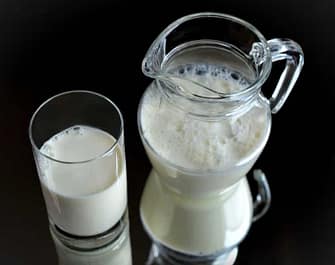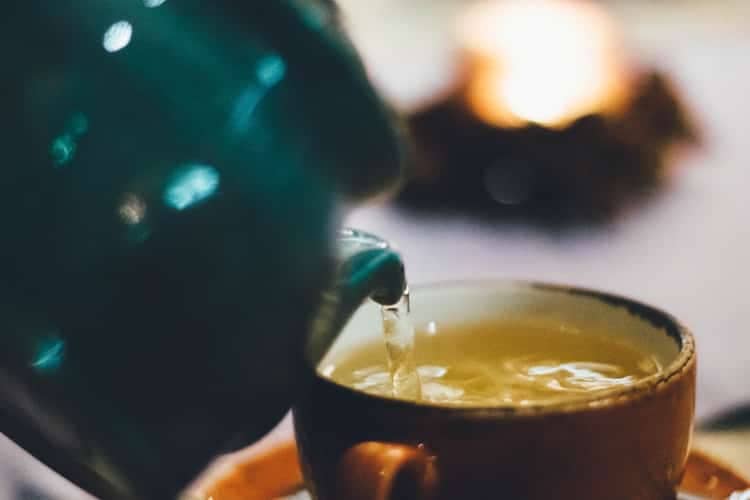Natural Sleep Aids: 12 Supplements for a Better Night’s Sleep

For some lucky people, sleep comes easy. But for many of us, shutting down at the end of the day
and getting a great night’s rest can feel downright impossible.
Sleep is your body’s way of recouping from the physical and mental stresses of the day. It helps remove toxins, synthesize hormones, and heal and restore cells, tissues and organs. A full night of sleep also helps solidify memories and promote improved concentration and performance.
When you can’t fall asleep at night—or stay asleep for a full eight hours—your body doesn’t have the time it needs to fully recuperate. When you’re losing sleep on a regular basis, you can find yourself in a negative cycle.
- Pain, stress, or anxiety keep you up at night.
- You don’t get the rest you need to heal and recover.
- You may struggle to focus or perform in your personal and professional life.
- The pain, stress or anxiety return, sometimes even stronger than the night before.
You know that if you don’t get your body back into balance soon, you could become vulnerable to common insomnia side effects, like high blood pressure, heart problems, diabetes, depression and obesity.
But what can you do if you feel like you’ve already tried everything? You changed your nighttime routine for better sleep hygiene. You may have tried or considered medication. But even when you’re able to sleep through the night, you continue to wake up feeling exhausted!
You want to feel refreshed and perform at your best… but nothing seems to work.
Don’t give up hope!
Below are 12 completely natural sleep aids that you can use to get a better night’s sleep tonight, without having to buy a new mattress or take medication.
Curious if hypnosis could help you sleep well?
Take our hypnotizability test and find out!
1. Magnesium/Calcium
 Magnesium and calcium help you maintain normal nerve and muscle function. They also support immune system health, making them valuable additions to your diet even after developing a sleep routine that works for you.
Magnesium and calcium help you maintain normal nerve and muscle function. They also support immune system health, making them valuable additions to your diet even after developing a sleep routine that works for you.
The simple truth is that most of us don’t get enough magnesium and calcium in our diets. Magnesium is used in hundreds of cellular reactions throughout the body. And calcium levels have been linked directly to our ability to fall asleep—turns out the old trope of asking for a glass of milk before bed really works!
You can get magnesium from supplements and common, tasty foods, such as almonds, spinach, tofu, and dark chocolate.
Calcium is commonly found in milk, cheese, seeds, yogurt, almonds and beans.
2. Passionflower
Passionflower is a plant used to help treat insomnia and a variety of issues associated with sleep loss, like digestive problems, pain and anxiety. The chemicals in passionflower provide calming, muscle relaxing, sleep inducing sensations perfect for nighttime use.
You can get passionflower in supplements or drink it in tea.
3. Valerian Root
Valerian root is a very handy sleep aid that’s often used to reduce stress and anxiety. It works like a sedative on the brain and nervous system, helping your body relax so you can drift naturally off to sleep.
Valerian root is most commonly taken as a supplement.
4. Theanine
Theanine is an amino acid found in green tea that’s often used to help treat anxiety and high blood pressure.
Theanine works because its chemical structure is similar to glutamate, a naturally occurring amino acid in your body that helps transmit nerve impulses to the brain. In other words, it helps your brain get the message that you’re ready for some shut eye.
You can get theanine from green tea or as a supplement.
5. Ashwagandha
This popular adaptogenic herb has been used to treat a wide range of conditions that can impact sleep, including arthritis, asthma, menstrual problems, anxiety—even hiccups!
The chemicals in ashwagandha help calm the brain, reduce swelling, lower blood pressure, and improve immune health.
You can take ashwagandha as a supplement.
6. GABA
Gamma-aminobutyric acid (GABA) is a neurotransmitter that sends chemical messages through the brain and nervous system. It’s involved in regulating communication between cells. Its primary role is to inhibit or reduce the activity of neurons in nerve cells, which helps slow down your system so you can calm down and drift off to sleep.

You can take GABA as a supplement or get it from fermented foods like kimchi, yogurt and some teas.
7. Eye Mask
No, it’s not a dietary supplement. But wearing an eye mask is a natural and effective way to get a better night’s rest.
Blocking out light physically prepares your body for sleep, which allows you to fall asleep faster and stay asleep longer.
8. Vitamin B3 (Niacin)
Vitamin B3 is one of your body’s 8 essential vitamins. It helps metabolize nutrients and is involved in the production of sex and stress-related hormones.
Increasing how much vitamin B3, or niacin, you get can be a powerful way to regulate your sleep cycle and reduce sleep disruptions.
You can take vitamin B3 as a supplement or get it from eating liver, lamb, chicken, veal and beef.
9. 5-HTC
The 5-HTC compound is naturally produced in the body and supports the production of serotonin—an important initiator of sleep.
Studies have shown that 5-HTC, particularly in combination with GABA, can lead to decreased time getting to sleep and a longer night’s rest.
You can take 5-HTC as a supplement or add more to your diet by eating eggs, pineapples, tofu, salmon, nuts, and seeds.
10. Lemon Balm
Lemon balm has been used for centuries to promote calm and alleviate discomforts related to upset stomach, bloating, vomiting, menstrual cramps, headaches, and more. This perennial herb comes from the mint family and delivers a sedative, calming effect.
You can apply lemon balm as a salve, take it as a tincture, or drink it in tea.
11. Chamomile Flower
Chamomile is often used to treat nervous disorders, like insomnia, anxiety and muscle tension. Dry chamomile flower is also known for its anti-inflammatory properties. It’s many beneficial effects have made chamomile one of the most popular and common natural sleep aids and herbal remedies around the world.
Its most often found in herbal tea, but you can also take it as a supplement.
12. Melatonin

Short-term use of this supplement is often recommended for insomnia related to circadian rhythm disturbances, though you may wish to consult with your doctor before taking melatonin.
Sleep Better Naturally
Better sleep means better concentration, learning, problem-solving and decision-making. It means better health overall.
We hope this article helps you find a natural sleep aid that works for you. And if you would like to learn more about how to fall asleep without using medication, check out our tips for better sleep hygiene and how to fall asleep fast.
Curious if hypnosis could help you sleep well?
Take our hypnotizability test and find out!
